HOME
How Horses Help Us Become Better People – A Four Part Series: Part One
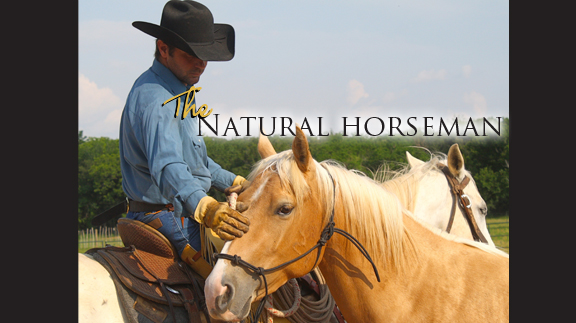
By Steve Stevens
I often find myself telling a client who is having a rough time with a horse what a great opportunity they have to work on themselves. What a blessing the horse is for them, opening them up to endless amounts of self reflection. How exciting it is to become a better human through learning how to correctly communicate with the horse. As you can imagine, I get all sorts of first responses to this concept of horse/humanship.
Some of the responses are of confusion, frustration, anger, or even tears and heartbreak. I hear things like, “You don’t understand. I just want you to train my horse; I don’t need training” or I don’t need to work on myself. It is my horse that has issues.” I’ve heard, “You are not my therapist!” and I have also seen people look at me like I am crazy and wonder how quick they can get off my property. Sometimes I mention what a gift the horse is to help us work through personal issues and the client will completely break down. I imagine to some I am like a Kung Fu master trying to describe the Yin & the Yang.
After working with humans and horses for nearly twenty years, it is, in my humble opinion, that while working with horses, if they are not improving your ability to become a better person you are missing the boat. Unbeknownst to people, when I am working with the human or the horse, it has become my life’s mission to help with this process. To truly connect with the horse, we have to work on so many of our basic fundamental human skills. Number One—we must work from a place of Truth to have pure honesty about ourselves.
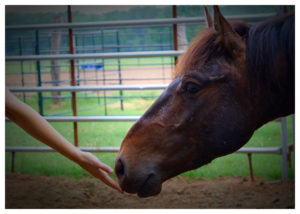
Allow the horse to teach you what human qualities need more work. Whether it is having more patience, nagging too much, needing more assertiveness, having more awareness, how realistic your expectations are, or how confident you are with your skills. (Photo courtesy of Amanda Stevens)
We have to admit our flaws, be truthful about our abilities and be painfully aware of our intentions. See, horses can read us like a book because their sensorial levels are so much more acute than ours, due to being a prey animal and having the ability to survive millions of years with the use of flight. They can feel our fear, anxiousness, and frustrations—most of all our intentions, even if we are not aware consciously of what they are, (due to distractions of the mind’s ego.) If you were dealing with another human and they were nervous, anxious or manipulating a situation, would you trust them? I know I wouldn’t and would get away as soon as possible. If a horse is in the same situation, without the constraints of being connected to a halter and lead, or in a stall or a pen, they will almost always choose to leave.
This is where the horse can help us work on ourselves. If you can admit your true emotions, you can work on those issues from the bottom up. This will help you focus on what areas truly need work, and will actually help build the relationship between you and your horse. So the next time you work with your horse, take a deep breath and ask yourself what you want to accomplish with him or her. Be honest with your emotions and fair to your horse.
Allow the horse to teach you what human qualities need more work. Whether it is having more patience, nagging too much, needing more assertiveness, having more awareness, how realistic your expectations are, or how confident you are with your skills.
Give yourself time for reflection and start working on these human skills that we all lack in. Someone might have said this before but my mentor Kenny Call said, “Let the horse be your greatest teacher.”
Attractions
The Deadliest Prairie in Texas
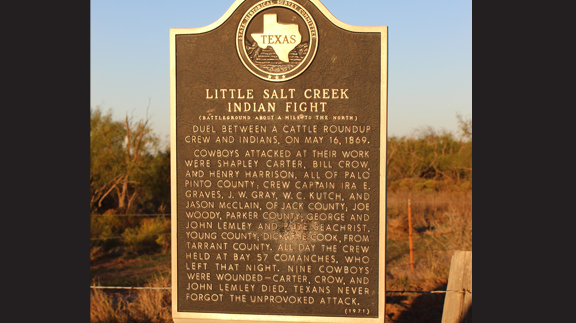
By Shannon Gillette
The Salt Creek Prairie with its rolling natural grasses and rampant wildflowers was a deceptive backdrop to the most dangerous prairie in Texas. Located in the northern section of Young County, the prairie absorbed an abundant amount of blood, shed from the battles between the encroaching white man and the Indians desperately trying to hold on to their home lands.
The Salt Creek Prairie was the location of several encounters between the Kiowa, Comanche and the area ranchers. The Indian Raid of Elm Creek on Oct. 13, 1867, resulted in the death of seven ranchers, five former Confederate Soldiers, the kidnapping of six women and children and the theft of 10,000 head of cattle. On May 18, 1871, the prairie witnessed another massacre when the Warren Wagon Train was hit by Kiowa under the command of Satanta, Satank and Big Tree. Seven members of the wagon train were murdered and forty-one mules stolen. But perhaps one of the bloodiest encounters was the Salt Creek fight on May 16, 1869.
Eleven cowboys under the watchful eye of their foreman, Captain Ira Graves were in the process of rounding up about five hundred head of their cattle about five miles southeast of present day Olney, Texas. The ranch hands were William Crow, John and George Lemley, C. L. Carter, Jason McClain, W. C. Kutch, J. W. Gray, Henry Harrison, Rube Secris, Joe Woody and a former slave known as Dick. They had noticed signs of recent Indian activity and were vigilant as they gathered the herd together. Each was armed with cap and ball six shooters. They had pointed the cattle towards the ranch and had made about four miles headway when they noticed a few more head grazing in the distance. Graves sent Carter and Kutch to gather them up. They had advanced about two miles when they spotted a large band of Indians approaching fast. Carter and Kutch could have taken cover in the sparse timber, but realized they would be leaving their companions in serious danger. The two groups met in the middle and tried to take cover in a small ravine that drained into the Salt Creek. The shallow-make shift fox hole offered very little protection.
The Indians attacked again and again. Arrows rained down on the cowboys in a continuous stream of painful blows. They attacked and retreated and attacked and retreated, but each time were met with volleys of gunfire from the small group of ranch hands. Each time the Indians retreated, they conferenced with their leader, who had stationed himself on a small hill away from the battle. After six hours of the constant onslaught, Graves developed a plan. When the Indians retreated, he ordered his men to stand and wave as wildly as they possibly could. The band of Indians, numbering over fifty strong, retreated for a final time, leaving the small band of cowboys alone.
As the dust settled the ranch hands evaluated their losses. In Kutch’s personal account given several years later, he described the aftermath: “Wm. Crow had been dead for several hours, and C. L. Carter had a severe arrow wound in his body, and had been also painfully injured with a rifle ball. John Lemley was mortally wounded in the abdomen with an arrow; J. W. Gray had been twice struck with rifle balls, once in the body and one in the leg; W. C. Kutch had two arrow heads in his knee and one in his shoulder; Jason McClain had been twice wounded with arrows; Rube Secris had his mouth badly torn, and his knee shattered; Geo Lemley had his face badly torn, and an arrow wound in his arm; and Ira Graves and Dick were also wounded.” Harrison was sent to Harmison Ranch for help.
The exhausted and wounded cowboys braved a very long and frightful night. With great relief, the morning hours brought the welcome sight of an incoming wagon. The rescuers patched the wounded as well as they could and sent word that doctors were needed desperately. The doctors did not arrive until a full twenty-four hours later. Carter passed away the next day from the injuries received during the battle. Two years later, McClain died while on another cattle drive. The cause of his death was blamed on the substantial injuries incurred on that fateful day in 1869.
While today the prairie grasses still wave and the wildflowers bloom in gorgeous arrays of colors nestled between cactus and mesquite, the blood shed is a distant memory. On crisp spring mornings it is easy to picture the deadly predicament that the cowboys faced.
This article originally appeared in the January 2016 issue of NTFR.
HOME
Preparing Spring Gardens
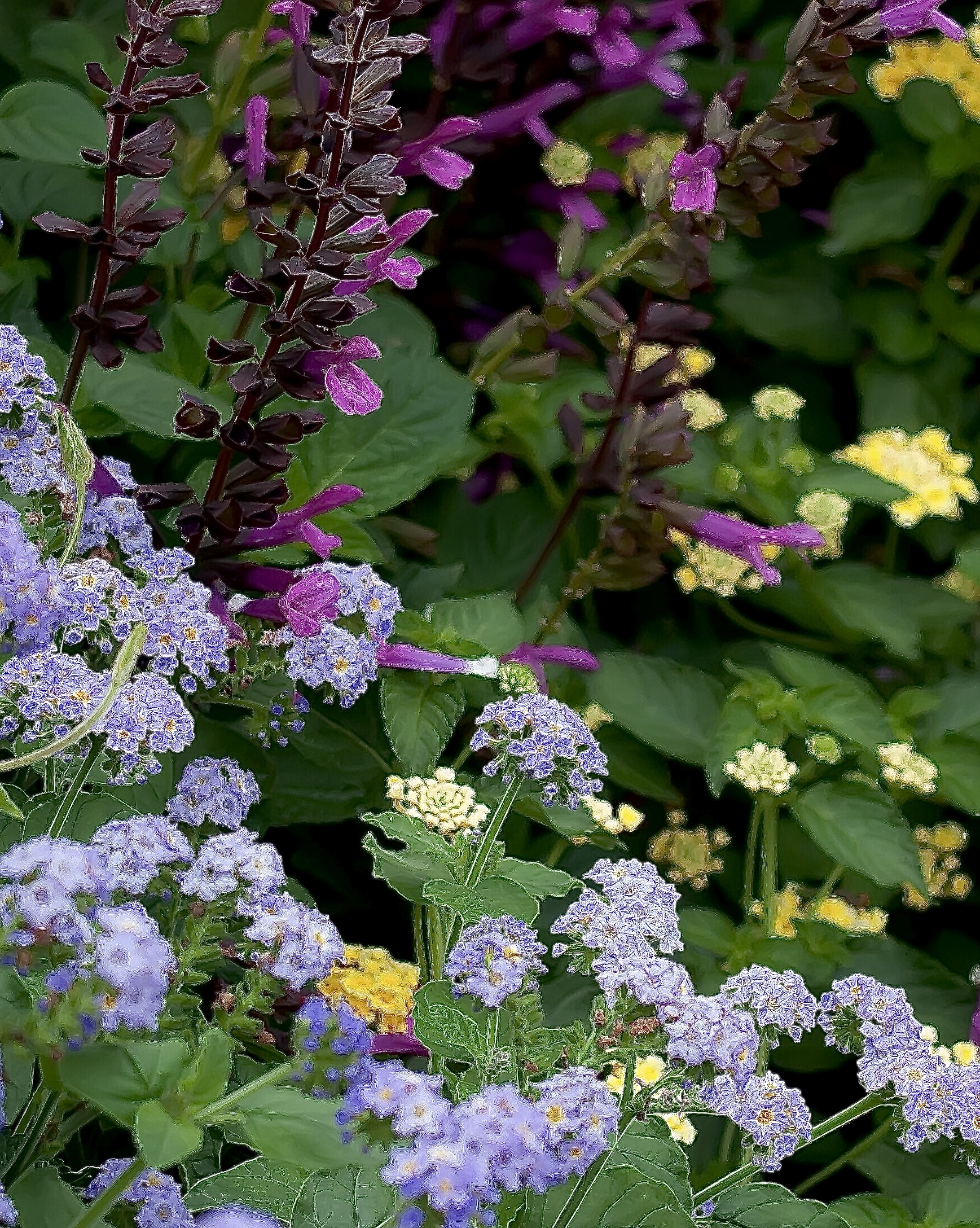
By Hannah Claxton | Editor
The North Texas area is located within USDA Hardiness zones seven and eight. The zones are categorized by predicted low temperatures for winter and timing of the first and last frosts.
Zone seven usually has winter low temps between 0 and 10 degrees F with the average date of the first frost falling between Oct. 29 and Nov. 15 and the average date of the last frost falling between March 22 and April 3.
Overall, these two zones have similar climates and growing conditions, making the options for timing and variety within a garden very similar.
In these zones, cool-season crops should go in the ground in March, meaning that soil preparation should start now.
To read more, pick up a copy of the January edition of North Texas Farm & Ranch magazine, available digitally and in print. To subscribe by mail, call 940-872-5922.
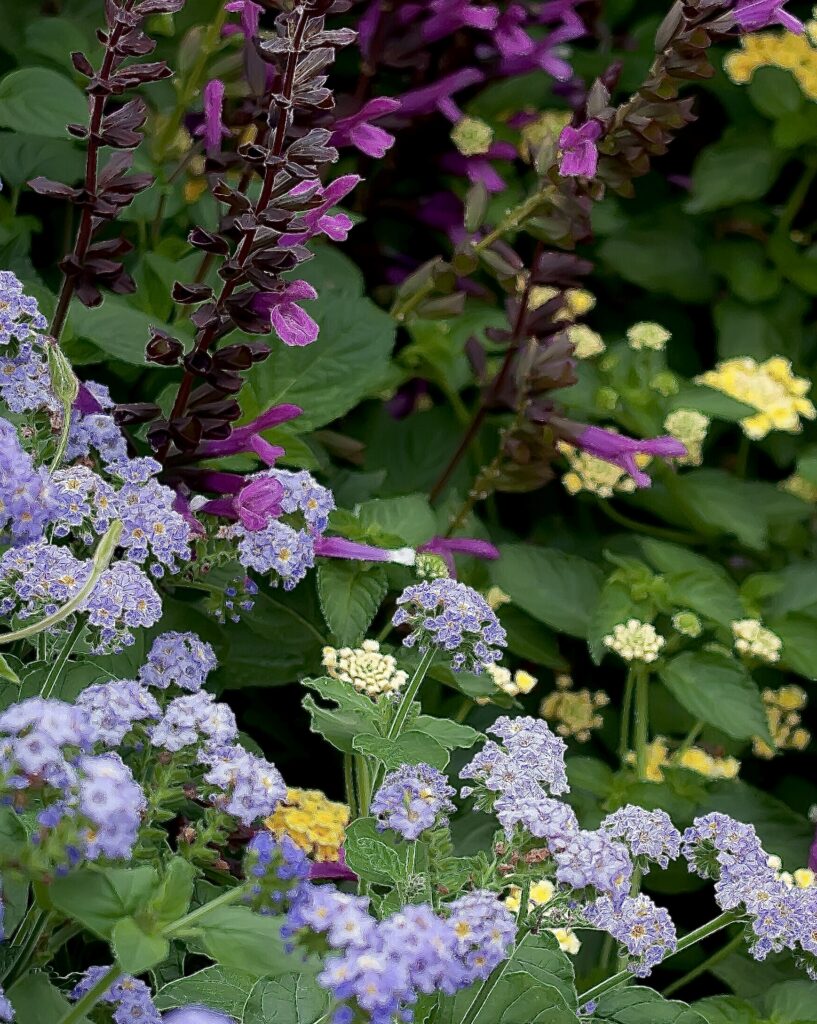
HOME
Equine Vaccinations
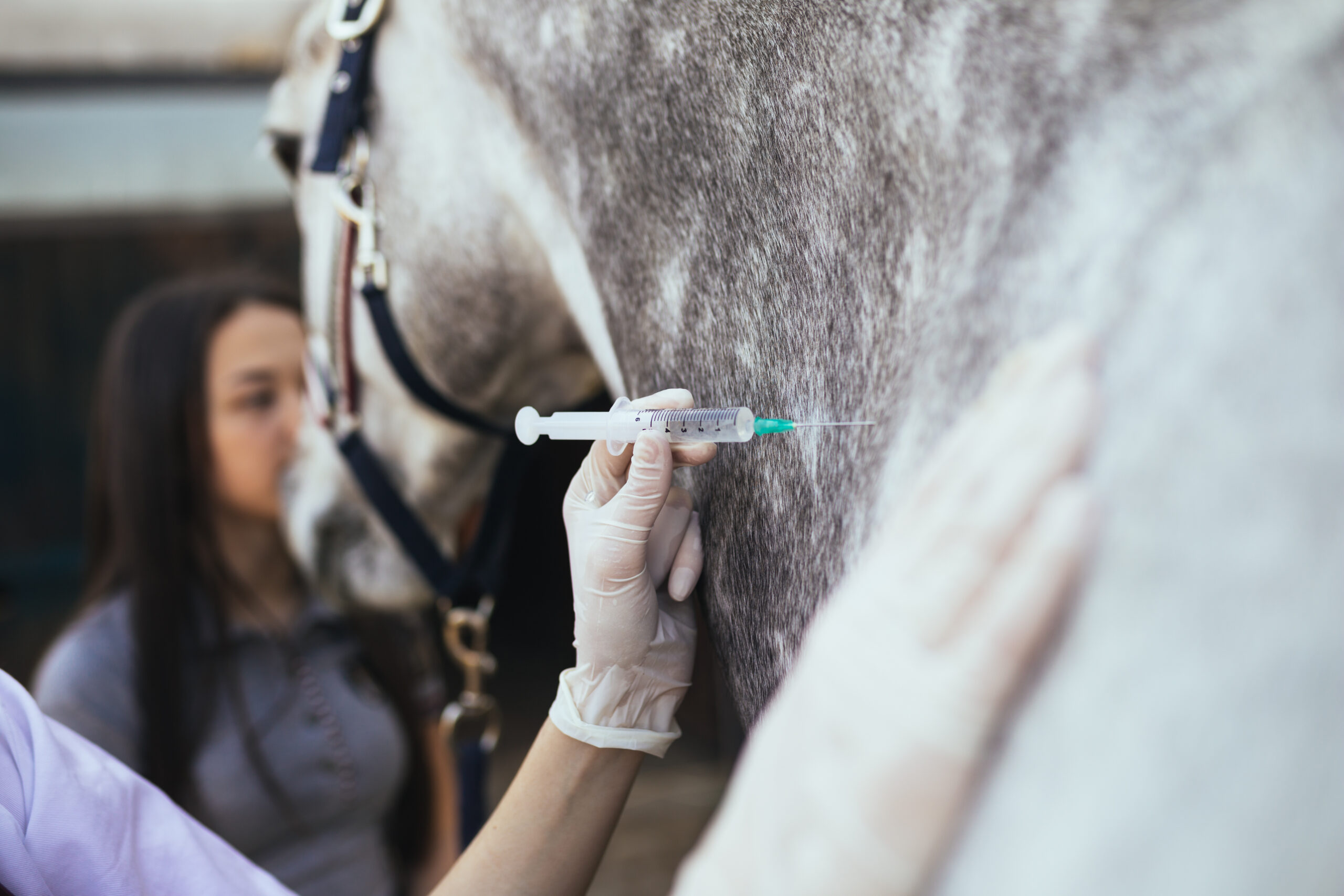
By Heather Lloyd
Vaccinations are a critical component of maintaining the health and well-being of horses, especially in environments where they are exposed to other animals, such as in the sport, show and performance arenas. Horses, like all animals, are susceptible to various infectious diseases that can spread quickly and cause serious harm.
A routine vaccination schedule helps prevent the spread of these diseases by preparing the horse’s immune system.
To read more, pick up a copy of the November edition of North Texas Farm & Ranch magazine, available digitally and in print. To subscribe by mail, call 940-872-5922.
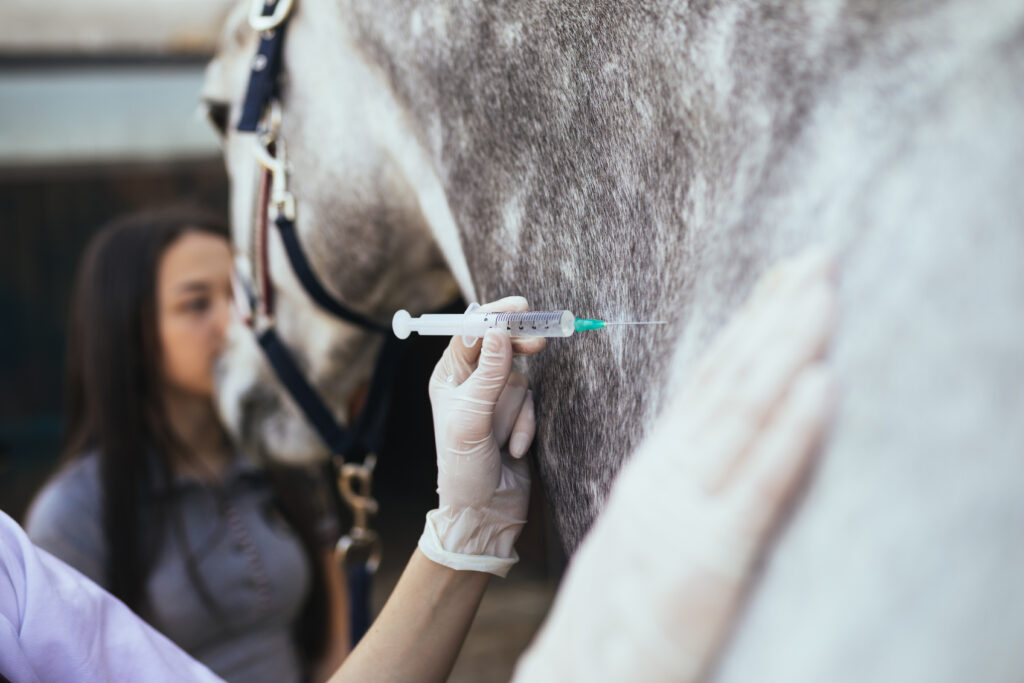
-

 Country Lifestyles2 years ago
Country Lifestyles2 years agoScott & Stacey Schumacher: A Growth Mindset
-

 Country Lifestyles8 years ago
Country Lifestyles8 years agoStyle Your Profile – What your style cowboy hat says about you and new trends in 2017
-

 HOME8 years ago
HOME8 years agoGrazing North Texas – Wilman Lovegrass
-

 Outdoor10 years ago
Outdoor10 years agoButtercup or Primrose?
-

 Country Lifestyles9 years ago
Country Lifestyles9 years agoJune 2016 Profile – The man behind the mic: Bob Tallman
-

 Country Lifestyles8 years ago
Country Lifestyles8 years agoDecember 2016 Profile, Rusty Riddle – The Riddle Way
-

 Country Lifestyles5 years ago
Country Lifestyles5 years agoAmber Crawford, Breakaway Roper
-
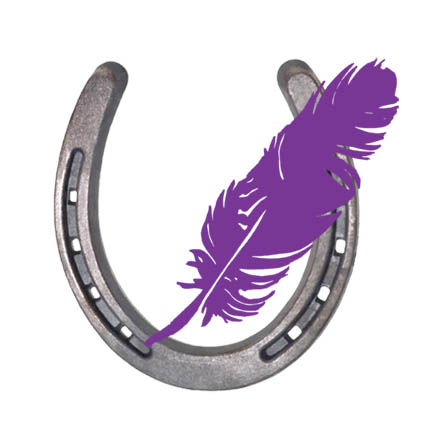
 Horsefeathers11 years ago
Horsefeathers11 years agoMount Scott: Country Humor with David Gregory




